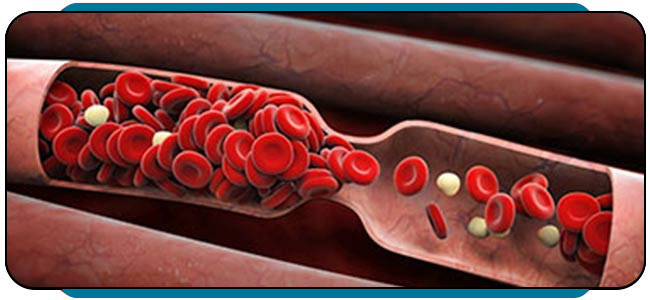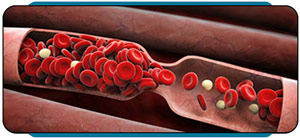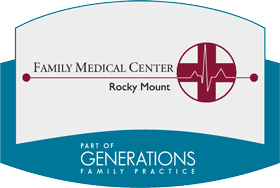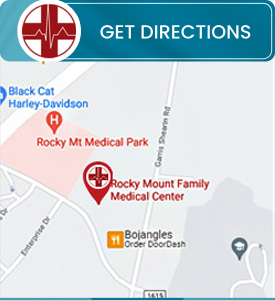Coagulation Disorders Treatment Clinic in Rocky Mount, NC
A coagulation disorder, also known as a clotting disorder, refers to a condition where the blood’s ability to clot properly is impaired. This can lead to excessive bleeding or inappropriate clot formation. Our professional healthcare team offers coagulation disorder treatment at Rocky Mount Family Medical Center. For more information, please contact us or book an appointment online. We are conveniently located at 804 English Rd, Suite 100 Rocky Mount, NC 27804.


Table of Contents:
What are the three clotting disorders?
What are the symptoms of a blood clotting disorder?
What causes poor coagulation?
How do you treat coagulation defects?
Some of the most common coagulation disorders are:
• Hemophilia A (factor VIII deficiency) – This genetic disorder predominantly affects males and is characterized by a deficiency in clotting factor VIII. While the severity of symptoms varies from case to case, the condition often leads to frequent spontaneous bleeding episodes in the joints, under the skin, and in the mouth.
• Hemophilia B (factor IX deficiency) – Commonly referred to as Christmas disease, this condition is similar to Hemophilia A in that it mainly affects males and leads to increased bleeding tendencies. The key difference lies in the deficient clotting factor, which in this case is factor IX.
• Von Willebrand disease – This condition is the most common hereditary bleeding disorder, affecting up to 1% of the general population. It results from a deficiency or dysfunction of the von Willebrand factor, which is crucial for blood clot formation. Symptoms can range from mild to severe and typically include frequent nosebleeds, easy bruising, and prolonged bleeding from minor abrasions.
Some of the symptoms that blood clotting disorders cause include:
• Excessive or prolonged bleeding after injury – Those with clotting disorders often find that even minor cuts or injuries bleed excessively or take longer than usual to stop bleeding. This prolonged bleeding can be alarming and may require medical attention to control.
• Easy bruising – Those affected by coagulation disorders often experience bruising, even after a minor bump.
• Frequent nosebleeds – Patients with coagulation disorders may experience recurrent nosebleeds, which can be spontaneous or triggered by minor trauma.
• Blood in urine or stool – The presence of blood in the urine or stool, whether visible to the naked eye or detected through medical tests, can be a sign of underlying clotting issues.
In addition to these symptoms, other signs of coagulation disorders include chronic fatigue, weakness, heavy bleeding during menstrual periods, and redness and swelling around the body. In cases of hypercoagulation, or blood clots, symptoms such as swelling, tenderness, chest pain, and shortness of breath may occur. If you experience any concerning symptoms, contact our team to receive medical attention immediately to prevent complications.
Poor coagulation, or difficulty in forming blood clots, can be caused by various factors, including genetics and other underlying health conditions. For example, hemophilia arises from mutations in genes responsible for clotting factors VIII or IX. Similarly, von Willebrand disease is caused by a genetic mutation affecting the production of an important factor for blood clot formation. Therefore, individuals with a family history of coagulation disorders are at higher risk of experiencing poor coagulation.
In addition, inadequate vitamin K levels, crucial for clotting, can lead to bleeding disorders. Certain factors heighten the risk of developing coagulation disorders, such as family medical history, certain medications, including antibiotics, blood thinners, and hormone-based drugs, as well as certain underlying conditions. Autoimmune disorders, cancer, and liver disease can disrupt the clotting process and lead to coagulation issues. Consult our experts today to learn more about our services.
There are a variety of approaches to treating coagulation problems, including plasma transfusions and medications to either prevent or promote blood clotting. The treatment that’s right for you depends on your diagnosis, the severity of your symptoms, and various other factors.
For example, if you experience excessive bleeding as a result of your blood clotting disorder, a plasma transfusion can be used to reintroduce clotting elements into your blood. If your condition is related to a vitamin K deficiency, your doctor may prescribe phytonadione to encourage blood clotting.
To manage your symptoms safely and effectively, your healthcare provider will thoroughly assess your needs and create a personalized treatment plan to address your coagulation disorder. If you have been diagnosed with a condition affecting blood clotting or have unexplained symptoms, such as excessive bleeding and easy bruising, schedule a visit with the specialist at Rocky Mount Family Medical in Rocky Mount, North Carolina. For more information, please contact us or book an appointment online. We are conveniently located at 804 English Rd, Suite 100 Rocky Mount, NC 27804. We serve patients from Rocky Mount NC, Nashville NC, Westry NC, Dortches NC, Red Oak NC, and Sharpsburg NC.

Additional Services You May Need
▸ Ancillary Services
▸ Diabetes Management
▸ Pediatric Care
▸ Family Care
▸ Men’s Health Care
▸ Women’s Health Care
▸ Employer Services
▸ Joint Injections (Cortisone)
▸ Laboratory Services
▸ Hypertension Treatment
▸ Vaccines and Immunizations
▸ Sports Physical Exam
▸ Flu Shots
▸ Dehydration Treatment
▸ Sunburn Treatment
▸ STD Testing



